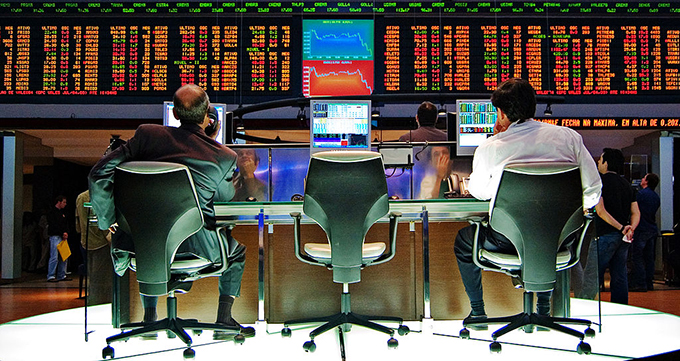
In the 1990s, economists indulged heady hopes that globalisation would raise all boats via unfettered free market activity. Now, but a generation later, many are having second thoughts. That’s because global free markets, while indeed maximising GDP for all concerned, have also ushered in staggering rates of inequality together with a looming threat of irreversible climate change from increased greenhouse gas emissions.
Some scholars are going so far as to blame capitalism itself. James Hickel argues that “there’s something fundamentally flawed about a system that has a prime directive to churn nature and humans into capital, and do it more and more each year, regardless of the costs to human well-being and to the environment we depend on”. But what should come in its place is anyone’s guess. Capitalism is the culprit and there’s an angry band of revolutionaries ready to ditch the idea in favour of something entirely new — starting with granting inalienable rights to nature itself, as Hickel himself suggests.
While certain reforms may sound refreshing, we might not want to reach for such desperate measures as dismantling an economic system that has managed to bring us unprecedented access to cutting-edge technology, information, and medicine at eminently affordable prices. Besides, capitalism at its root isn’t so much about greed as basic self-interest. And each of us is self-interested to some degree. This is a fact of biology we ignore at our peril.
The problem perhaps then isn’t so much with self-interest as how it is conceived. It has become a default assumption now, especially in the US and UK, that the only way to get someone to do something – anything – is to pay them to do it. The what’s-in-it-for-me attitude is being pandered to like never before. Harvard Philosopher Michael Sandel, for example, found that the word “incentivise” scarcely appeared until the 90s and since then has soared in use by more than 1,400%. School districts are even paying children to read — often with positive results.

Incentivising children to read. Liderina/Shutterstock.com
The problem is that empirical research indicates that financial incentives also tend to weaken altruistic motivations. This is mainly for two reasons: the first is that the more we become immersed in an atmosphere of financial incentives, the more our social instincts atrophy from disuse. The second is that we come to expect the option to buy our way out of having to actually be virtuous. We can simply buy pollution offsets for instance, and need not restrain our appetites to continue thinking of ourselves as good people.
This aspect does appear to be becoming a serious problem with capitalism. It tends to inure us to the needs of others and can even deaden our interest in becoming more virtuous, personally and collectively. But it need not remain this way going forward.
I certainly hope capitalism can survive, considering that history has well demonstrated that societies that balance social equality with economic freedom tend to thrive over the long term. But if that is to continue, we may need to fashion a new conception of what capitalism means. The great political economist Adam Smith made us come to grips with the fact that we are naturally profit-seeking creatures. But this is not necessarily a sin — it is taking the attitude to excess that starts to blind us to other humanistic concerns.
A new form of capitalism
The challenge then for us at this time in history is to apply a more integrated and aspirational conception of self-interest to the notion of capitalism — one that can nudge toward and not simply away from virtue. For while we are profit-seeking, we are also social beings, as Aristotle pointed out long ago. It’s in our DNA and the reason we are able to think and communicate linguistically to begin with, as Wittgenstein poignantly demonstrated.
The path I point to in my own work is to uncover ways that virtue may be rekindled through civic and economic activities – there is vast evidence that financial incentives are not always the most powerful motivators. It is often actually more effective to appeal to the better angels of our nature — specifically, the moral image we would like to maintain of ourselves. This is why appeals to civic pride still remain more effective than financial incentives in jury duty, voting, nuclear waste disposal, and even income tax filing. People will also only cheat to the extent that they can continue to maintain an image of themselves as non-cheaters.
Imagine how different capitalism would be if business leaders, investors, workers, and consumers started assessing business performance not simply in terms of personal gain but of moral self-image? Joint appeals to pride and shame can function as powerful motivators for engaging virtuous social behaviour while avoiding the potential psychological damage that shaming alone can bring.

People buy fairtrade goods due to moral, rather than financial, incentives. By chrisdorney/Shutterstock.com
We are already seeing trends in this direction in many sectors and stakeholder levels. Consumers increasingly avoid purchases they perceive as enabling exploitation, discrimination, or depletion of natural resources. Firms are responding by articulating clear corporate social missions backed up by third-party social responsibility reporting. Many travellers are prepared to shun airlines that have a poor record on diversity issues. Imagine how many more of us might change our habits if more marketers invited us to consider what our purchases say about our values?
The same goes for workers, who are coming to realise that they do not live on bread alone and can be motivated to work better if they have good reason to believe in the overarching moral vision of their organisations. Numerous admired firms are responding by giving workers more say in management and improving quality of work life.
The all-important shareholders have unfortunately been the slowest group to respond to this shift, so we should start nudging them — and our own shareholding selves — to consider what our investment choices say about our values. Do we go out of our way to invest in socially responsible firms or do we just look at the return on investment? If only the return, then how can we reasonably continue thinking of ourselves as basically good people?
Given capitalism’s immense influence over nearly every aspect of many people’s lives, it would serve well to remind ourselves more often of what our economic choices reveal about the values we uphold as individuals. If Adam Smith was correct in his assessment that self-interest is not in itself a sin, then proving it could well be the greatest challenge of our age.
Author Bio: Julian Friedland is Assistant Professor of Business Ethics at Trinity College Dublin
